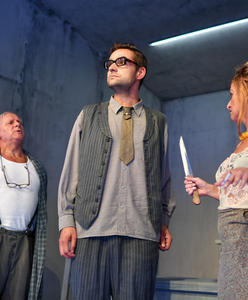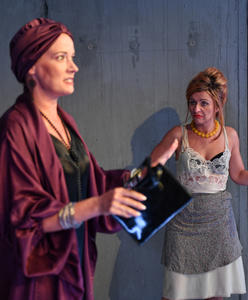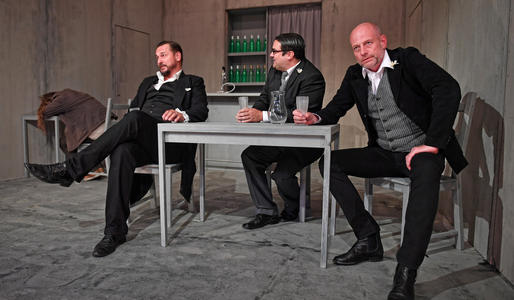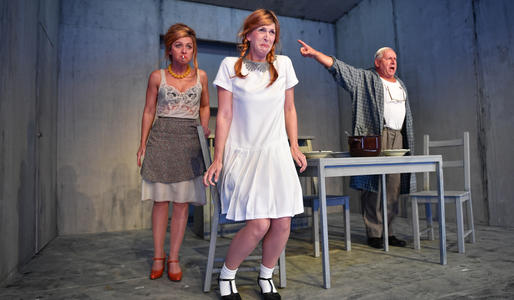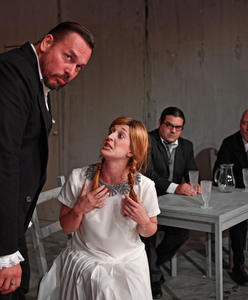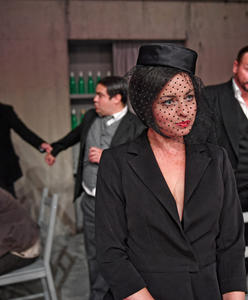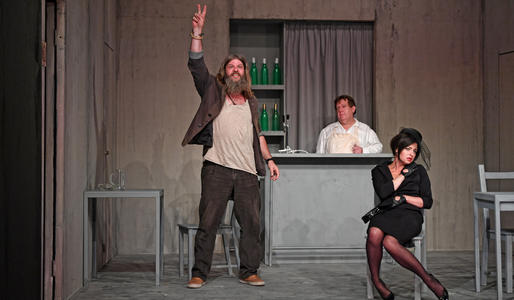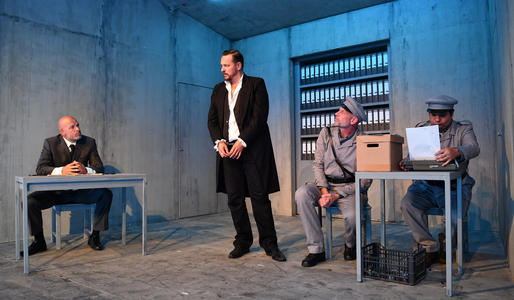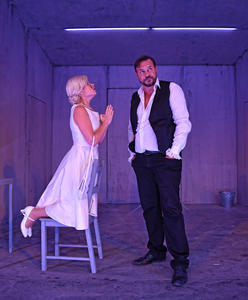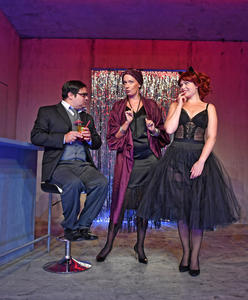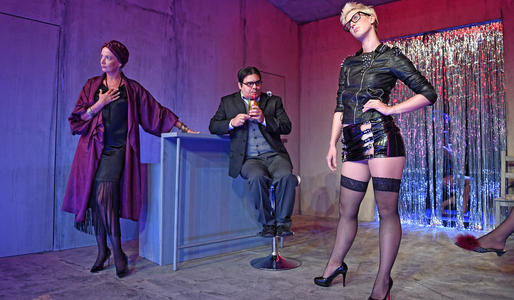a comedy
The Beggar´s Opera is rightly considered to be the most attractive play by Havel for spectators. It is based on a play of the same name by John Gay which has been popular since the 18th century, and which has also inspired a world-famous adaptation by B. Brecht and K. Weill. It concerns two bosses of competing criminal gangs, Macheath and Pechum, together with corrupt police chief Lockit, and their fight for power over the London underworld.
The uniqueness of Havel´s adaptation lies in its consistently unsentimental view of the gangland practices of the leaders of the London underworld (and by implication the leaders of the world). The traits of unscrupulousness and lie-telling are taken to absurdity here: Everyone lies to one another, and everybody betrays each other. Nobody is who they seem to be. The theme is lent still greater power by the language employed, which stands in comic contrast with the characters that use it. Thugs, thieves and prostitutes express themselves in a highly cultivated manner, as if they were moral paragons and also experts in psychology, sociology and ethics, etc. With inexorable logic, they pile up arguments for their opinions as well as for any changes to them, cleverly and manipulatively explaining their vile actions and failures in such a way that they have the audience laughing while simultaneously grasping the chilling reality of the perfectly functioning fraud that is our world.
The truth does not prevail because everybody has their own truth, and even this is only applied when it pays off. Idealism is ridiculous, and as a rule is doomed to die in a situation where pragmatic cynicism wins under all circumstances. The production will be prepared for our theatre by Hana Burešová.



















